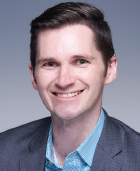Three Little Words Changed the Course of My Life
Abstract

Activism came naturally to me, and it led me to psychiatry. Psychiatry, like activism, helps people write their own stories and resist internalizing the stigmatizing narratives thrust upon them by others.
I grew up in a close-knit, Appalachian community that exemplified pastoral beauty. However, for a queer kid like me, this charm was accompanied by an isolating homogeneity. In the late 1990s, my region of Virginia had virtually no Internet access. I had never (knowingly) met another gay person. “Queer as Folk” wasn’t out yet, and the only gay people on TV were throwing chairs on “The Jerry Springer Show.” Surprisingly, it was in this context that I learned about psychiatry, although I wouldn’t know it as such until many years later.
In 1997, when I was 13 years old, I vividly recall sitting in my pediatrician’s office waiting for a sports physical. In public places like this, I had learned to avoid eye contact with anyone who might “read” me as gay. Being in the closet fostered a sort of paranoia, rooted in reality, that a single effeminate hand gesture or verbal inflection could uproot my entire life. As I stared down at my lap, I noticed three words in the periphery that broke through my closet door: “Yes, I’m Gay.” It was the cover of Time magazine in which Ellen DeGeneres had publicly come out as a lesbian. I couldn’t stop glancing at it, trying to get a glimpse of an image that seemed unimaginable to my teenage self. I quietly folded the magazine and left the office.
In the safety of a locked Plymouth Acclaim, I read about an actual queer person, a public figure who even my parents would recognize. I saw myself in Ellen’s story of isolation and also in her hopeful, at times defiant, words of perseverance as an out queer person. That day, I realized personal narratives matter. Too often, we are defined by others (parents, society) in ways that are stigmatizing and demeaning. Over time, we internalize those narratives as if they were our own. Taking charge of your own story is profoundly empowering.
I continued on my journey and noticed many of my friends struggling as well. Virginia isn’t known for progressive public school sex education, but my high school was developing a reputation for teen pregnancy. At the beginning of senior year, my platonic girlfriends approached me about starting a “Million-for-Roe” chapter to support reproductive choice. They were concerned about the lack of reproductive health care in our community and frightened by the anti-choice rhetoric of then President George W. Bush.
Over that semester, we collected petition signatures and started conversations that had never before taken place in our high school. In retrospect, this tiny action probably didn’t impact the national conversation about Roe v. Wade; however, it did change the way my friends and I felt about ourselves. We had spoken our truth out loud, a perspective that was implicitly “off limits.” We challenged the narratives that others had written about us.
In college, I founded an LGBTQ rights organization and joined groups advocating for a wide range of progressive issues. I found myself feeling less isolated and more hopeful in the process. Some might call this a mature defense mechanism against internalized homophobia. For me, it was survival. I led writing workshops for queer people in Richmond, Va. I delighted in seeing people make connections between their past and their present; rewrite themselves as visionaries rather than “freaks”; and transform what others called “sins” into gifts. Changing how we thought about ourselves changed how we felt about ourselves and led us to “act up” in beautifully original ways. We were doing CBT activism!
Psychiatry occupies a special place within the House of Medicine. As psychiatrists, we acknowledge the neurobiological contributors to psychological distress and still explicitly leave room for the individual. Our specialty encourages patients to be the lead authors of their personal narratives and to achieve a dialectic of “taking control” and “letting go.” Whether that writing takes place in a psychiatrist’s office or at a protest rally, the results can be transformative.
For me, the lessons I learned as an activist in the streets are often the same “supportive maneuvers” I make as a psychiatrist. It’s been 20 years since I “borrowed” that issue of Time, and reading those three little words still inspires me. In fact, it’s why I became a psychiatrist. ■



